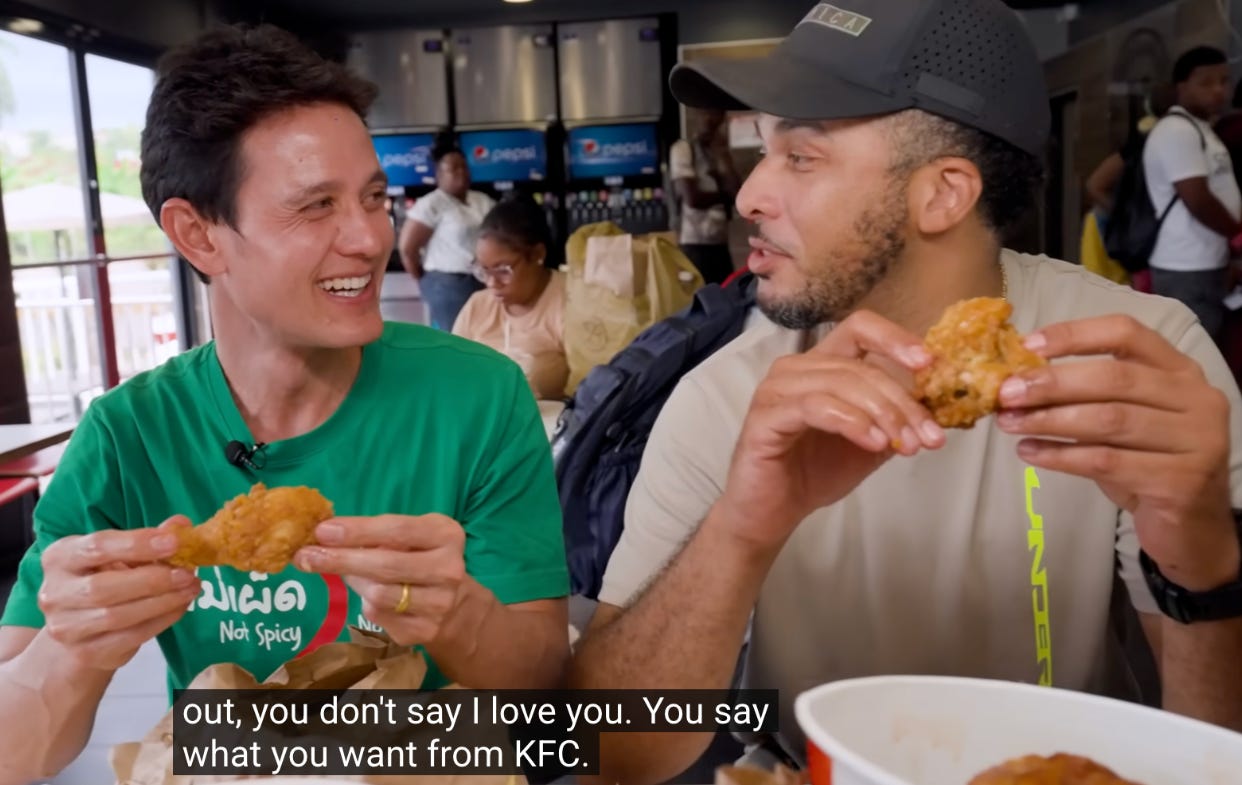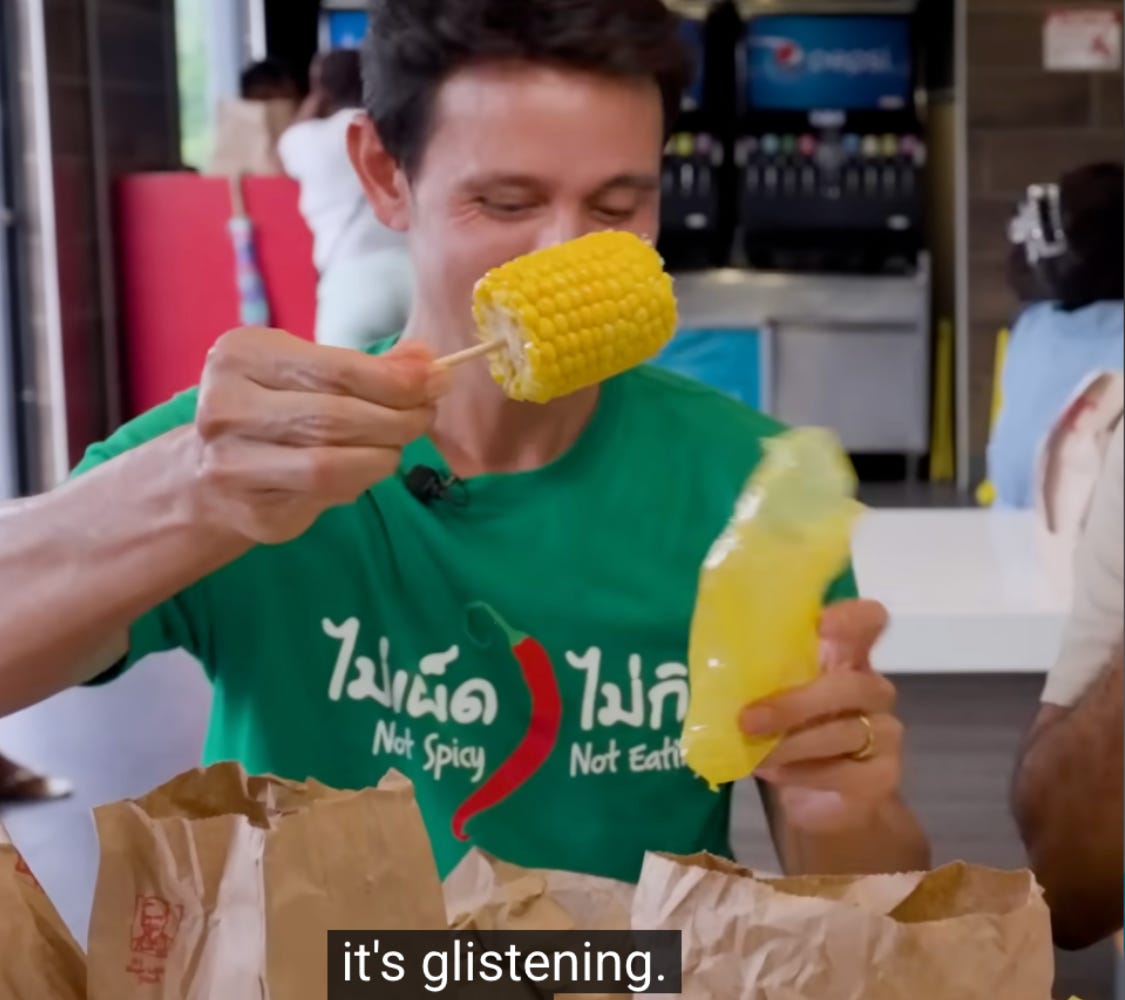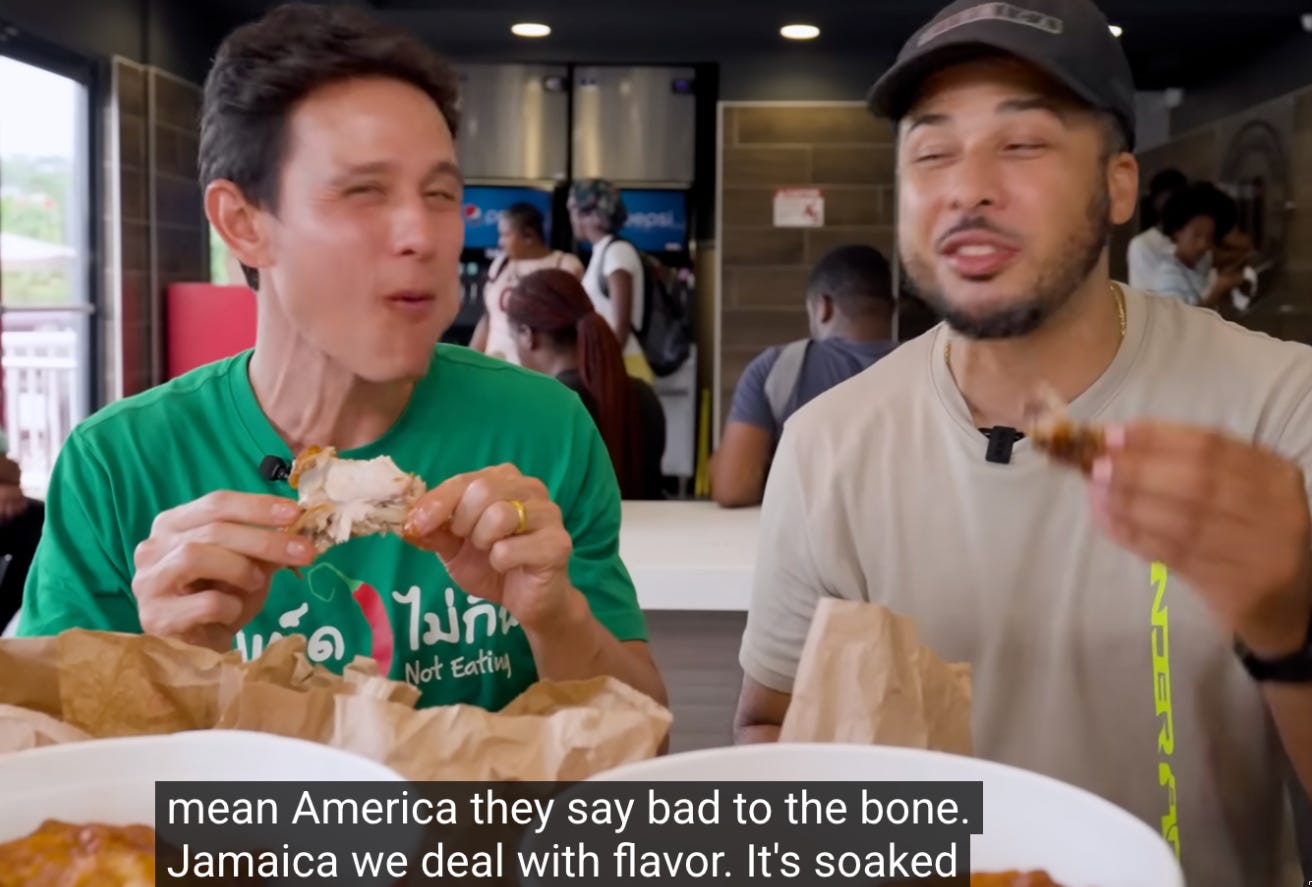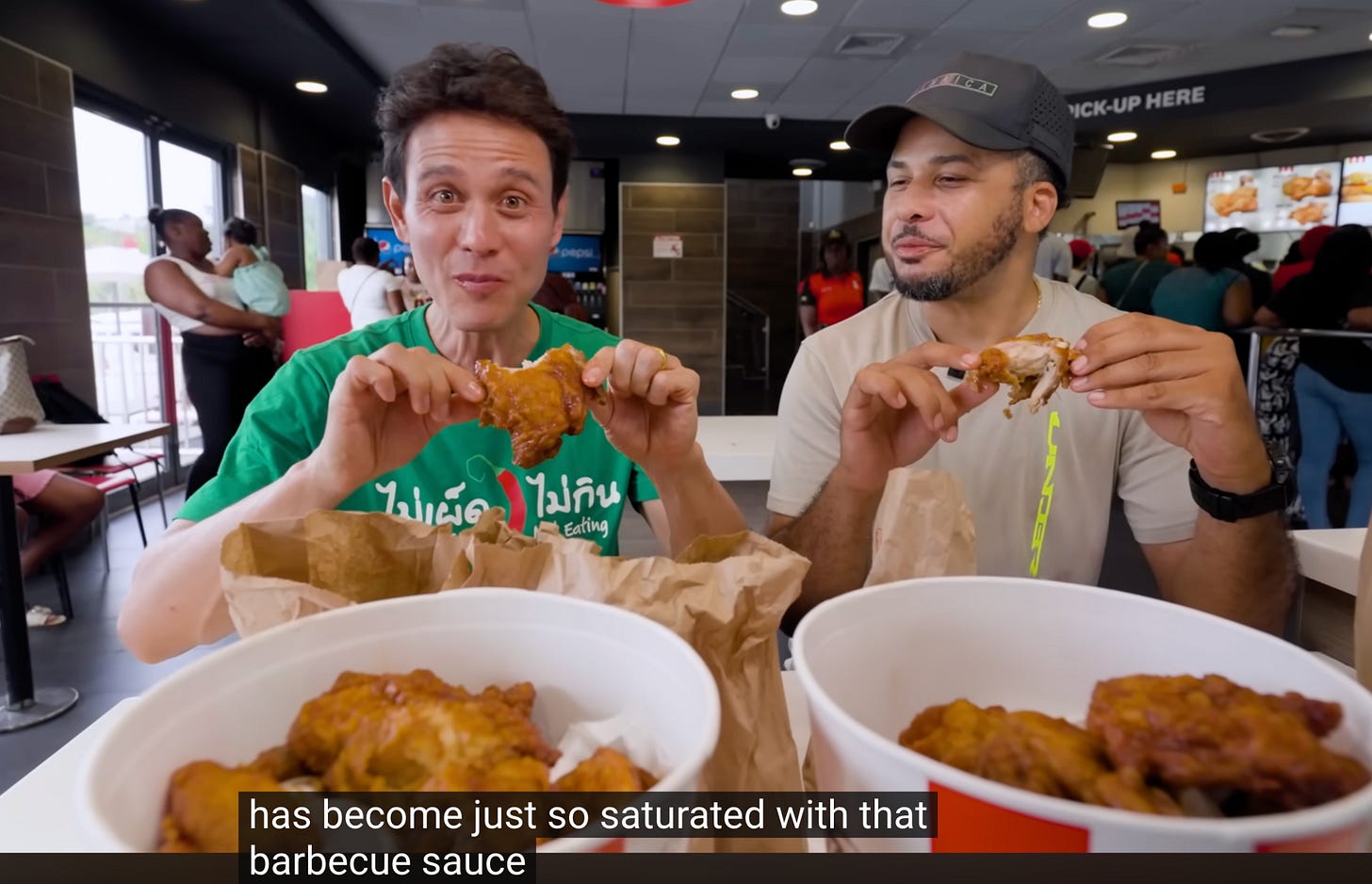False National Flavor Accreditation
There’s this ongoing myth online — that Jamaica has the world’s best KFC.
It’s been repeated enough that it’s become cultural lore.
People swear it’s “different,” “gourmet,” “full of flavor.”
There’s even a cottage industry of food vloggers who fly down to “confirm” it.
But here’s where things get interesting.
In this viral video, a prominent food reviewer — known for trying food around the world — travels to Jamaica to test the claim.
He eats the chicken, the corn, the sides, and immediately declares:
“Best KFC ever.”
Why? Because it’s spicy. Because it’s flavorful. Because it’s in Jamaica.
The reviewer himself admits he doesn’t try KFC in other countries.
He doesn’t compare the spicy version in Thailand, or the double-hot in Malaysia, or the BBQ variations in Korea.
He just tries this one in Jamaica — a place globally associated with spice, music, and rhythm — and suddenly it becomes legendary.
But here’s the thing:
The spicy KFC isn’t unique to Jamaica.
That “secret” pressure-fried, chili-laced version exists everywhere.
The corn? The sides? Same global supply chain.
What’s really different isn’t the recipe — it’s the narrative wrapper.
When Branding Becomes National Identity
What’s happening here is a textbook case of False Nationalist Accreditation — when a local or national identity gets credited with superiority because of the story around it, not the product itself.
The Jamaican KFC experience isn’t about the chicken — it’s about what Jamaica means to the eater.
In that moment, the reviewer isn’t just tasting spice — he’s tasting mythology.
It’s tourism disguised as gastronomy.
He’s consuming a story — and the local guide reinforces it: “We do it different here.”
The Broader Lesson
Markets do the same thing.
They attach narratives to performance.
When one region or brand captures the emotional story, it gets disproportionate credit — and everyone forgets that the fundamentals are identical elsewhere.
It’s a mirage built on perception, repetition, and context.
The reviewer didn’t find “better chicken.”
He found a better story.
And that’s what drives markets, brands, and even entire national reputations:
who can make the familiar feel like revelation.
Closing Thought
Jamaica doesn’t need validation from KFC.
But the internet’s obsession with where flavor comes from is a reminder of how narratives hijack our perception of quality.
Because in a world where everyone’s eating the same chicken,
the only thing that changes is who gets to claim ‘spice’.







